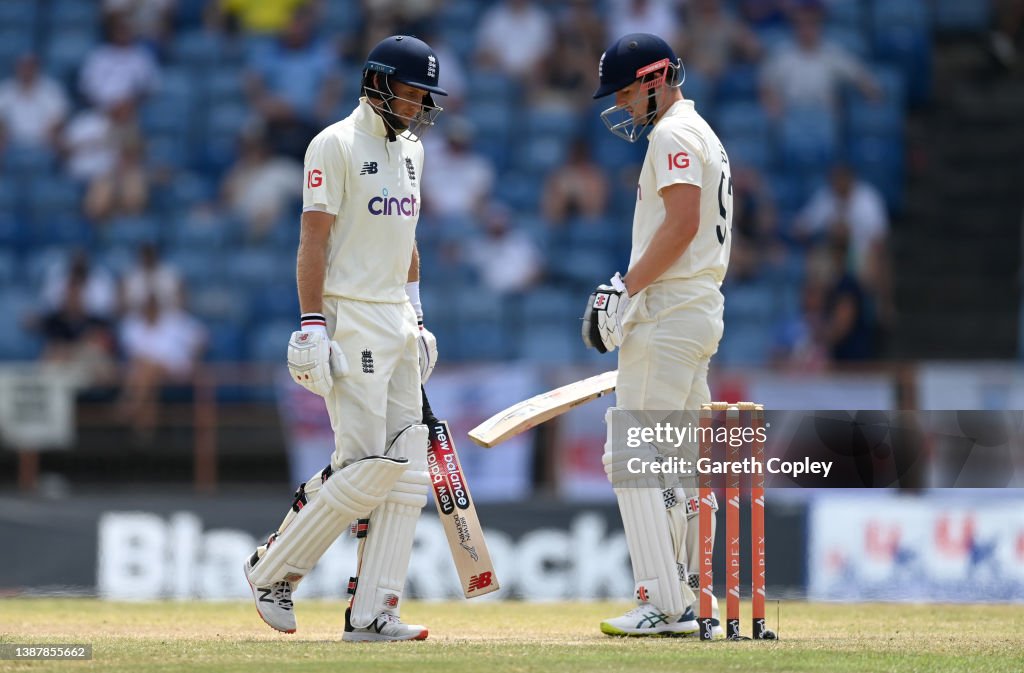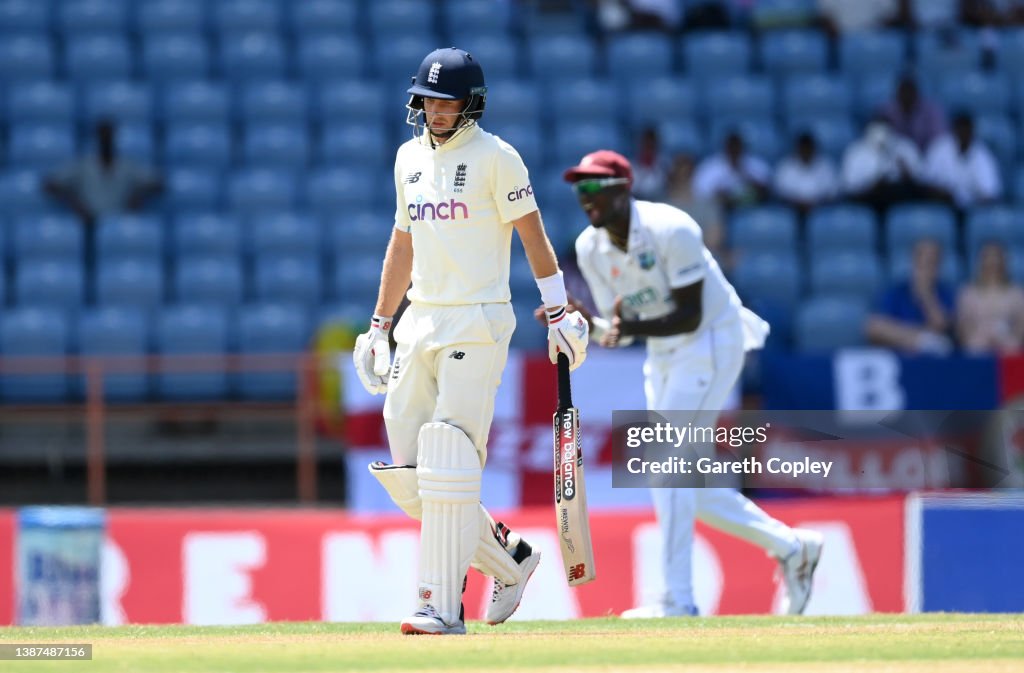There was a moment when it became clear Joe Root’s position as England captain was as good as untenable. It was not during a match, or even at the end of one.

It was not at the conclusion of a losing series either, although there have been enough of those of late. It was last month, standing on the boundary’s edge the day before the first Test in Antigua.
This was the dawn of the great red-ball reset. And Root, one of the greatest batsmen in the world and among the finest British sportsmen of his generation, was taking questions explaining it.
Except he didn’t sound like the Root the world of cricket so admires, the man who stoically stands in the middle, defending the honour of an England Test team that is average at best, the glue holding it together.
He certainly didn’t sound like a captain, a teacher, a leader, or a legend. Instead, Root spouted the deathly lines of a salaryman, a corporate husk, the assistant to the regional manager at Dunder Mifflin.
The Sir Vivian Richards Stadium was empty but so was Root, his words and their meaning. His audience filled in mental bingo cards marking off the cliches.
Opportunity, tick, going forward, tick, where we need to be, tick, positive dressing-room atmosphere, tick.
And opportunity again, obviously, because that was the buzzword. He used the opportunity, or derivatives of it, 10 times in the conversation. Everything was an opportunity, there were opportunities for everyone.

And then England went out, collapsed on a dream batting track, and followed that up with the tamest opening bowling partnership in Test history.
There will be an opportunity now as a result of the red-ball reset, but it is an opportunity for some other poor soul to attempt to inspire this England team. For as much as Root, by the end, was not an effective England captain, so much of what went wrong on his watch was beyond his control.
The structure of the game in this country is not conducive to Test success, the players he had at his disposal are not of the highest red-ball standard. These are problems that Root, and now his successor, cannot be expected to shoulder.
Complications outside his influence, even if he makes all the big decisions on the day. By then, it is too late. The damage is already done, the flaws built-in.
So if Root sounded like he was reading from a press release, that was because few other options remained. The red-ball reset was just more rebranding.
Unless Root doesn’t know cricket, he must have feared that Craig Overton and Chris Woakes were not a wicket-taking partnership on a foreign tour. But honesty is often not the best policy.

Once as England captain, Nasser Hussain let his guard slip on an Ashes tour, against the greatest Australian side. He was asked about England’s chances. ‘With this team?’ he first queried, before hastily returning to the party line. There may have been occasions when Root felt the same.
So we can change the captain, but that does not mean English Test cricket will also evolve. Yet equally, that is no reason for Root to remain in the role. David Gower, a distinguished England batsman and former captain, summed it up perfectly.
‘At some stage, you get to the point where you realize that whatever you say or do, it’s not going to inspire a team anymore,’ he explained. ‘Even if you have new personnel, the atmosphere remains the same. A lot of people, including me, had decided it was time for a new voice.’

And those people included Root, too. He is not a fool. He will have seen his influence waning. There were complaints in Australia that the bowlers weren’t adhering to the tactical plans. Among the batsmen, too many get out to the same shot time and time again.
Root must be aware of those technical shortcomings, and must surely offer advice, and direction, as the captain of the team. Yet again it happens. No one is listening. The captain is not being heard. It is time for a new script.
The identity of the voice to read it presents the problem. The fact is, had England possessed an obvious successor, Root would not have lasted as long as he did.
There is not a single candidate that does not come with a massive question about their suitability.
Ben Stokes has spent time away from the game with mental health issues, Stuart Broad is 35 and does not play every game, Rory Burns had a disastrous Ashes series, lost his place and would be instantly under pressure.
Sam Billings, James Vince, Tom Abell, and other county captains are not of Test standard and England are struggling with 11 let alone 10. Jonny Bairstow, Zak Crawley — the ECB risk ruining players by hurrying them into such a position of authority.

In many ways, Root’s greatest achievement is that he has not let the role affect his brilliance as a batsman. Yet this remains the right time to go.
Sitting on the balcony in Grenada as England slipped inexorably to defeat, Root looked anguished, as if he knew it was a series too far.
The ECB, realizing they could find a new director, a new head coach, and new specialist coaches — and mistakenly believing they had equivalent bowlers to Broad and James Anderson — sacked everybody bar Root after Australia, because they had no clue where to go.
This forces their hand. Without structural reform and a refocus on the red-ball game, the new captain arrives with a ludicrous workload.
There is, however, one positive. He will have at his disposal one of the greatest cricketers in the world. His name’s Joe Root.
Note: This article is written by Martin Samuel and has been published at Daily Mail UK
